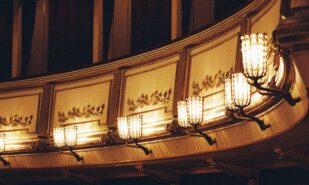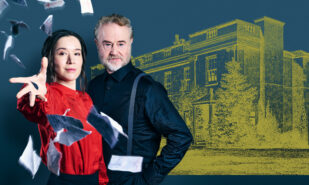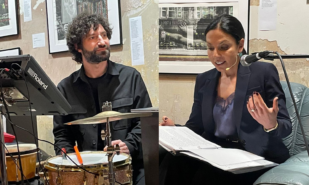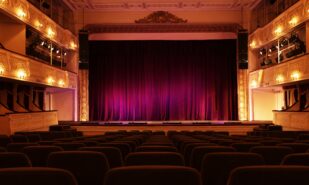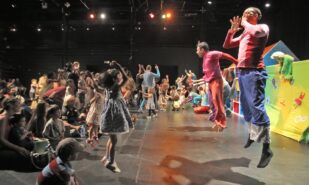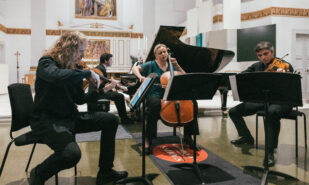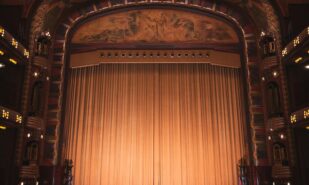‘Touch me with noble anger”: Korean “Lear” opened the K-Music Festival at the Barbican Theatre
From 3 till 6 October 2024 the Barbican Theatre hosted unique performances of ‘Lear’ from South Korea that combined traditional Korean opera in a modernised version (called ‘Changgeuk’), the national Pansori music and the Shakespearean plot about King Lear into a single performance that expanded our understanding of the possibilities of storytelling, theatre and music in one evening. ‘Lear’ was presented by the National Theatre of Korea and its resident member, National Changgeuk Company of Korea (NCCK). British audiences are already familiar with the latter’s productions, as six years ago at the London International Theatre Festival and last year at the Edinburgh Festival the NCCK had already presented its reworking of ‘Trojan Women’ (re-written and adapted by playwright Pai Sam-shik) – with the actor and singer Kim Jun-su heading the cast.
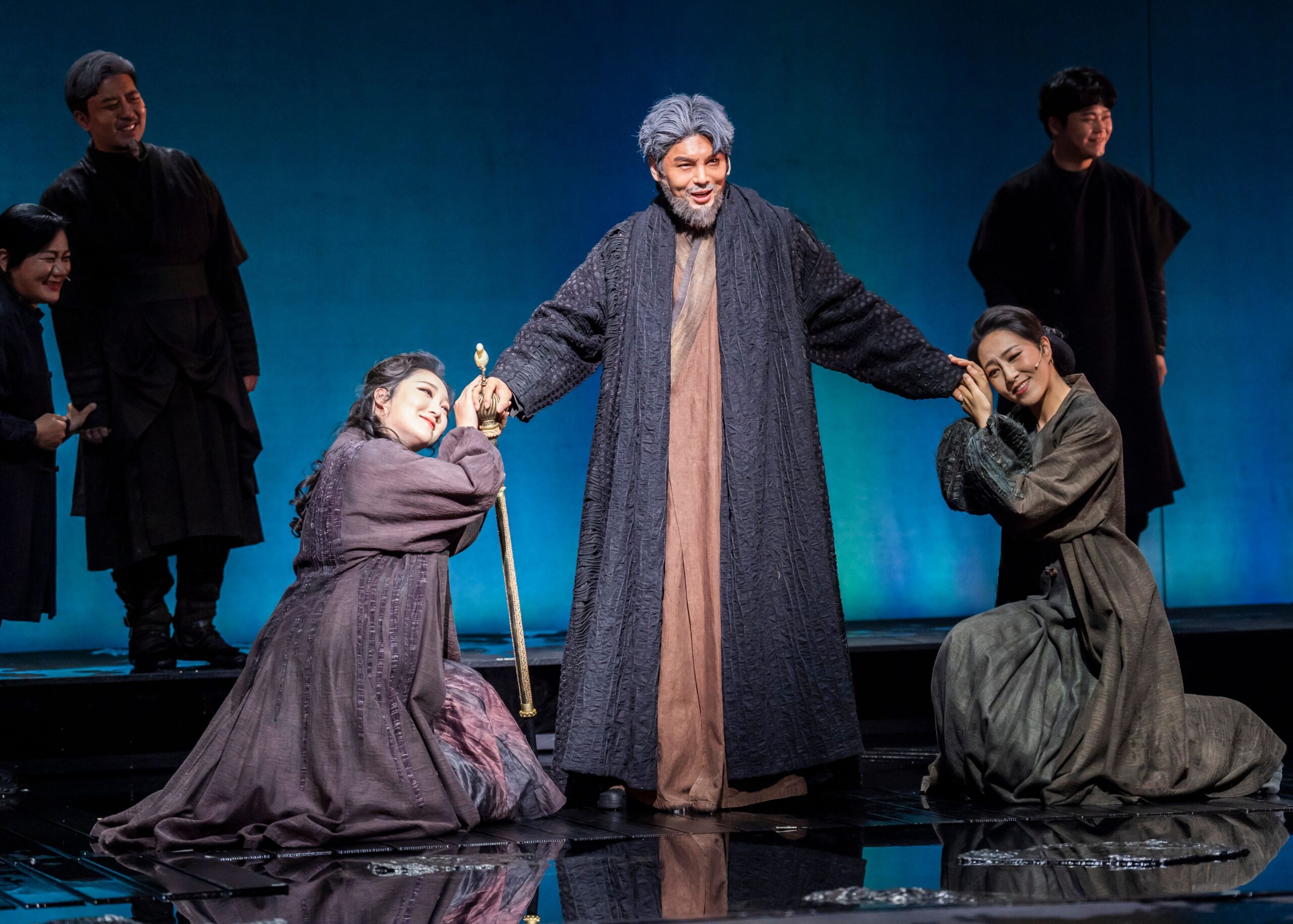
The same creative team has now for the first time presented ‘Lear’ in Britain. It premiered in Korea in 2022 and has been specially revised and updated for the opening of the London K-Music Festival. Besides the acclaimed actor Kim Jun-su, who again plays the title role, and national award-winning playwright Pai Sam-shik, the ‘Lear’ team includes the director and choreographer Jung Young-doo, the Pansori composer and the production’s music director Han Seung-seok, and the acclaimed film composer (his portfolio includes music for ‘Parasite’ and the TV series ‘Squid Game’) Jung Jae-il. I don’t think many people in the audience (with the exception of Korean Londoners) knew a lot about the Korean traditional opera genre. In Pansori ‘pan’ means ‘a place where people gather’ and ‘sori’ means ‘voice’ and ‘song’. This tradition is close to the traditions of shamanism, as the opera is performed with a special technique of trembling voice, and usually consists of two performers – a singer who accompanies his singing with mimics and gesticulation, and a drummer who accompanies him. The traditional Pansori music, being part of the UNESCO heritage, has only several surviving ancient plots, which are performed to the accompaniment of folk instruments in the course of four or five hours.
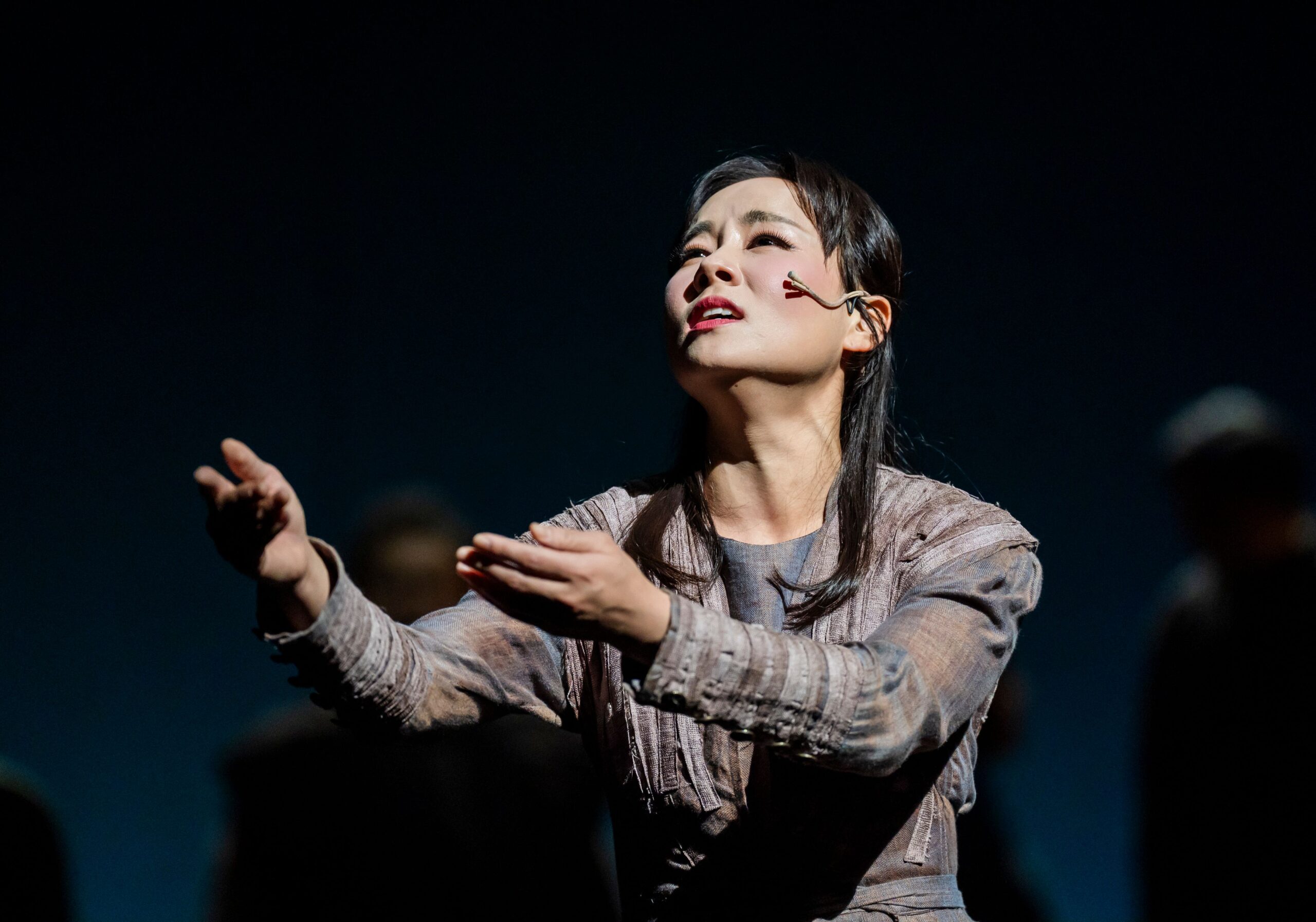
More recently, researchers and theatre practitioners in Korea have been actively trying to restore the existing plots, and to update the genre by bringing stories from the Western canon into the Pansori-based performance. It was for this purpose that the NCCK was established in 1962. Those who know Shakespeare’s King Lear certainly recognised its plot in the production that audiences saw at the Barbican, as the basic plot structure was retained by playwright Pai Sam-shik, who drew heavily on the melodramatic part of the play. In Korean ‘Lear’ the important events are King Lear’s quarrels with his daughters when they refuse to host him, Edmund’s deception, betrayal and manipulative actions, Gloucester’s blinding, Lear’s return to his youngest daughter and his reconciliation with her when it is too late. It felt like an abridged Shakespeare, a dramatisation of the Shakespearean plot partly stripped of its original language, but with some key metaphors and imagery retained, most notably the thunderstorm and Lear’s lone wanderings, which the Korean team focused on.

For the Korean playwright, as well as for the director Jung Young-doo, the most important thing in ‘Lear’ was the king’s (and Gloucester’s – as this duplication of self-deception is heavily emphasised by Shakespeare) overcoming his own inner blindness, and his discovery of the complexities of life, learning the hard lessons that are not taught in the form one might expect. For the Korean creative team the key theme was the confrontation between a human being and the forces of nature (aka the world). In the scenographic design of the play (set designer Lee Tae-sup) this natural world and the passing of time was represented by an endless mass of water (twenty tons were used for the productions). It is around and in this water that the characters walked and fell, it is this water that flowed and glistened under the bridge they walked – the characters in this opera stepped on a long bridge when Shakespearen tragedy had a high cliff where the blinded Gloucester is stranded. The playwright’s and director’s notes for the performance mention the need for everyone to survive a cold winter, and highlight the memory of those who helped to cope with it. It is through such a winter of hunger, cold, alienation and loneliness that Lear, followed by Gloucester (Yu Tae Pyung Yang), the Poor Tom aka Edgar (those incredible double transformations were very vigorously performed by Lee Kwang-bok who amazed the audience with his sense of humour and lyricism alike), and even the Jester (the amazing diminutive actress Park Sung-woo) make their way through.

This movement of a human being along the river of time, the river of life, his or her struggle against the forces of nature (and it is as forces of nature that the daughters Goneril and Regan appear here, as they are not condemned in this production, their malice and passionate attraction to Edmund is natural), his or her eternal loneliness and eternal need to understand one’s place in this world and come to terms with it – this is what the Korean actors, director, composer and musicians focused on in their ‘Lear’. With the help of Korean traditional music they suddenly added grains of incredible lyricism, drops of poetic pain, and pathetical notes veiled in music to Shakespearean plot. It might have seemed strange to some viewers at first when, interrupting their dialogues, the characters in the Korean ‘Lear’ suddenly stopped, illuminated by a ray of light, or gazed into a violent thunderstorm, conventionally represented on stage by bright lines and dramatic background (lighting designer Ma Sun-young), and began – to sing!
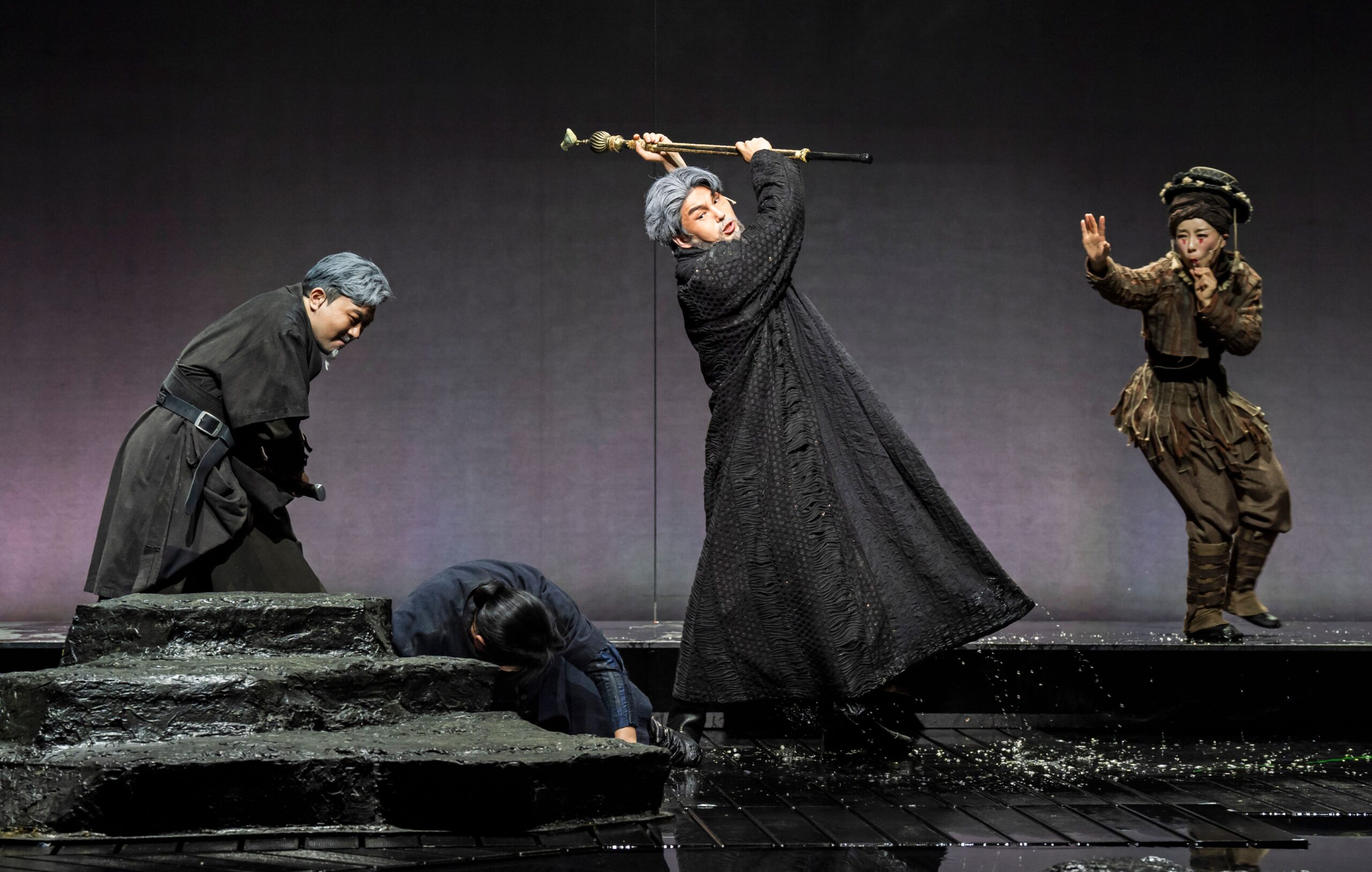
The nature of this singing is rather difficult to describe. It contained throat trembling sounds of amazing beauty, and for each character the composers of ‘Lear’ found their own music, wrote their own arias, that were somewhat reminiscent of arias from musicals (the influence of Western tradition on Jung Jae-il was obvious here). Kim Yun Soo (Lear) himself was particularly striking with his singing – this young actor was make-up for an old man, so this performance was not about infirmity, but about the movement in time of any conventional man. The strongest impression was also left by the three anti-heroes of this tragedy – Kim Su-in who played the role of Edmund, Yi So Yeon (Goneri) and Wang Yun-jeong (Regan), who sang their Pansori musical lines so beautifully and passionately that it was difficult to perceive them as villains. In our eyes this young man and two women joined the line of suffering people wading in the river of life and making mistakes.

Yes, this genre transition may have made the play lose its Shakespearean tragic feel, shifting this ‘Lear’ into a mixture of Eastern philosophical reflection on the meaning of life and musical with a tinge of melodrama. However, it also created the atmosphere of ritualistic non-psychological theatre and soundscapes from which it was difficult to escape. In order to help create this musical world there was an entire orchestra of musicians backstage, where traditional Korean instruments were combined with cellos and violins. It was only later, when the musicians appeared on stage for applause, that the audience realised the high level of coordination that was required from the soloists and musicians in the course of the performance. On this evening, the perceptions about the diversity of theatre genres were broadened for the Barbican audiences, who did not let the Korean singers and actors go and applauded non-stop, and these new theatre ideas were complemented by the newly-found ability to empathise with human destiny and understand the difficult twists and turns of our lives amongst nature.



